why do we have to use use before custom hook. Is this just a naming convention or there is something that React is doing internally to do something special?
I've created two custom hooks useCustomHook and customHook both are defined below. One with prefix use and other without. but while using useState hook in customHook eslint gives an error as:
why It is giving an error. Since the custom hook is just a normal function in which we can use other hooks in it. Below is the rule from React docs.
Unlike a React component, a custom Hook doesn’t need to have a specific signature. We can decide what it takes as arguments, and what, if anything, it should return. In other words, it’s just like a normal function. Its name should always start with use so that you can tell at a glance that the rules of Hooks apply to it.
useCustomHook: with use Prefix
import { useState } from "react";
export default function useCustomHook(initialValue) {
const [value, setValue] = useState(initialValue);
function changeValue() {
setValue((v) => v + 100);
}
return [value, changeValue];
}
customHook: without use Prefix
import { useState } from "react";
export default function customHook(initialValue) {
const [value, setValue] = useState(initialValue);
function changeValue() {
setValue((v) => v + 100);
}
return [value, changeValue];
}
